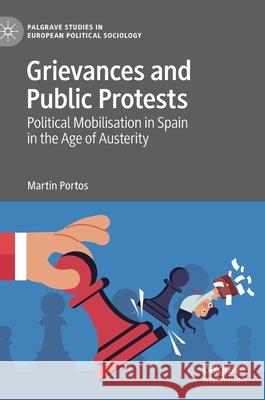Grievances and Public Protests: Political Mobilisation in Spain in the Age of Austerity » książka
topmenu
Grievances and Public Protests: Political Mobilisation in Spain in the Age of Austerity
ISBN-13: 9783030534042 / Angielski / Twarda / 2020 / 294 str.
Grievances and Public Protests: Political Mobilisation in Spain in the Age of Austerity
ISBN-13: 9783030534042 / Angielski / Twarda / 2020 / 294 str.
cena 194,08 zł
(netto: 184,84 VAT: 5%)
Najniższa cena z 30 dni: 192,74 zł
(netto: 184,84 VAT: 5%)
Najniższa cena z 30 dni: 192,74 zł
Termin realizacji zamówienia:
ok. 20 dni roboczych.
ok. 20 dni roboczych.
Darmowa dostawa!
Kategorie BISAC:
Wydawca:
Palgrave MacMillan
Seria wydawnicza:
Język:
Angielski
ISBN-13:
9783030534042
Rok wydania:
2020
Wydanie:
2021
Numer serii:
000453774
Ilość stron:
294
Waga:
0.52 kg
Wymiary:
21.01 x 14.81 x 1.91
Oprawa:
Twarda
Wolumenów:
01
Dodatkowe informacje:
Wydanie ilustrowane











